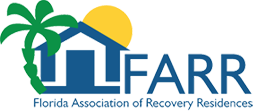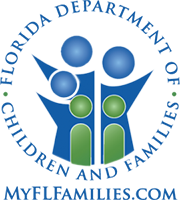Learn to Recognize Signs and Symptoms that Can Lead to Relapse
If you are in recovery from substance abuse, you understand the struggles of maintaining sobriety. It can feel like a daily uphill battle, but with the right resources and honest accountability, successful recovery is possible. Being aware of warning signs of relapse can help avoid going down a path you no longer wish to travel. Due to the chronic nature of addiction, relapse is possible regardless of how long someone is in recovery, so it’s important to be honest with yourself and the people who love and support you so you can avoid a potential relapse. There is no shame in admitting you need more treatment or resources to support you, after all, that is what they are there for.
The Three Stages of Relapse
When discussing relapse, it’s important to remember that relapse does not equal failure. Many variables contribute to relapse, and even if you do have a couple of bumps in the road, it does not mean you will never experience the freedom of sobriety again. Relapse is a process, rather than one single event. The American Addiction Centers classifies relapse into three stages; emotional, mental, physical.
- Emotional Relapse – The first stage of relapse is considered emotional. It’s when the person in recovery starts to experience negative emotions such as irritability, anxiety, or mood swings. They may begin to withdraw from their support systems and have disordered sleeping or eating schedules. During this stage, the person may not even realize they are at risk for relapse, so being aware of the warning signs and taking early action to prevent it is imperative.
- Mental relapse – Mental relapse is the next step in the relapse process. This is when the person is battling an internal struggle; on one hand, maintaining sobriety is important, and on the other is the comfort of numbing painful emotions or memories. During this phase, intrusive thoughts about using are prevalent and may be increasingly difficult to ignore. This is a very dangerous stage of relapse because once here, it is incredibly hard to maintain sobriety.
- Physical Relapse – Once the person is experiencing mental relapse, transitioning to physical relapse generally does not take long. This is the stage of relapse where the person resumes the use of their chosen substance. Encouraging the person to seek additional treatment is key to ensuring they get back into recovery.
Early Warning Signs to Look Out For
The best way to avoid a relapse is to be aware of the signs of impending trouble. Often our minds can trick us into reliving old memories in a positive light when in fact they were not. Don’t forget all the valid reasons you chose to enter into recovery and let those reasons be motivators towards your success. Here are some signs that may indicate that you or someone you care about are struggling with sobriety:
- Avoiding therapy, groups, or meeting with their sponsor
- Saying they have concerns about maintaining sobriety
- Depressed mood or increased anxiety
- Feeling hopeless
- Withdrawing from things they enjoy or socializing
- Changes in hygiene, appetite, or sleep
- Spending time with people they used to use substances with
- Being overly positive or jovial
- Minimizing their struggles with substance abuse
- Using other substances than what they received treatment for
What to Do if You Experience a Relapse
If you or a loved one experience a relapse, do not give up hope. You are worthy of a happy life, free from the restraints of addiction, and a couple of mistakes along the way does not mean you will never get there. The most important thing right now is to act swiftly to resume the treatment that you need and address the root cause of the relapse.
The more aware you are of your triggers and the warning signs of relapse, the better equipped you will be to avoid one in the future. Treatment specialists at The Source are available 24/7 on our confidential line at (800) 204-0418. Call to speak to a member of our team today or find us online at www.thesourcetreatmentcenter.com.

 The Source quite frankly saved my life and got me back on track, never giving giving up on me. When you are thinking about and looking through all of the different places to go for treatment this is the one that should stand out from the rest.
The Source quite frankly saved my life and got me back on track, never giving giving up on me. When you are thinking about and looking through all of the different places to go for treatment this is the one that should stand out from the rest.




























